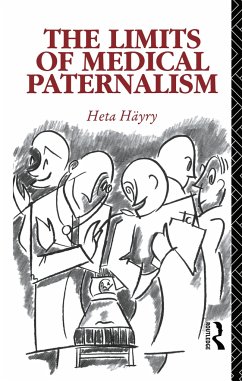
Medical Ethics, Prediction, and Prognosis
Interdisciplinary Perspectives
Herausgeber: Bondio, Mariacarla Gadebusch; Gordon, John-Stewart; Sporing, Francesco
Versandkostenfrei!
Versandfertig in 1-2 Wochen
167,99 €
inkl. MwSt.
Weitere Ausgaben:

PAYBACK Punkte
84 °P sammeln!
Recent scientific developments have given rise to numerous predictive procedures for detecting predispositions to diseases in patients. This knowledge, however, does not necessarily promise benign results for either patients or health care professionals. The aim of this volume is to analyse issues related to prediction and prognosis as a burgeoning field of medicine, which is revolutionizing the way we understand and approach diagnosis and treatment. Combining epistemic and ethical reflection with medical expertise, this book critically examines anticipatory medicine from various perspectives,...
Recent scientific developments have given rise to numerous predictive procedures for detecting predispositions to diseases in patients. This knowledge, however, does not necessarily promise benign results for either patients or health care professionals. The aim of this volume is to analyse issues related to prediction and prognosis as a burgeoning field of medicine, which is revolutionizing the way we understand and approach diagnosis and treatment. Combining epistemic and ethical reflection with medical expertise, this book critically examines anticipatory medicine from various perspectives, including history of medicine, bioethics, theories of science, and health economics.














